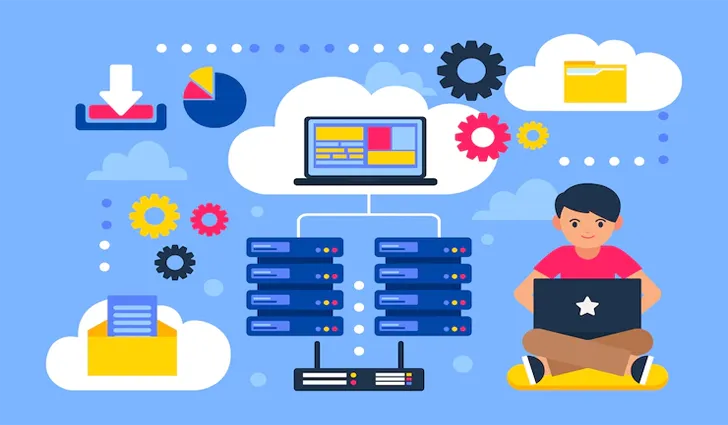
How to Choose Hosting for Your Local Business Website – HostNamaste
There is a lot of consideration that goes into finding the right host for your business website. If you mess up here, your website can be practically crippled. So, we have prepared a guide on how to choose hosting for your local business website!
Know what you are looking for
The first step in trying to choose hosting for your local business website is knowing exactly what kind of a host provider you will need. Of course, a reliable hosting provider will be able to account for your needs even if you hadn’t given the selection much thought. However, if your website sees a lot of traffic and you are relying on a small hosting provider, then you can experience all sorts of website crashes, lags, and other issues. The inverse is unfortunately just as bad. Signing up for hosting services with a large and often expensive hosting provider will only lead to losses down the line if you are not generating much traffic. So, always be objective about your needs!
Make sure the servers are stable
There is nothing more important for a local business website than stable virtual servers. Check over a host’s guaranteed server uptime and website speeds thoroughly before signing on. Note that this will not just reflect badly on your business directly. Google values website stability a lot, which means that a bad host will hurt your Google ranking. Which, in turn, will push your website down in the Google Search Results once someone looks you up. The usefulness of Google My Business should also not be underestimated, since benefits are immense to any local business, and your rankings there can also be hurt by bad Google ranking.
Account for future growth
It is equally as important to account for your future growth as it is to be realistic about your current needs. When trying to choose hosting for your local business website while trying to expand, this is doubly applicable. Will your current hosting provider be able to offer add-ons and website features you will need in the future? Will they be able to handle greater numbers of site visitors? Of, course, they do not need to be able to support your growth the whole way. It is natural to switch hosting providers if you outgrow your current one. But you should still make sure you will not need to switch too quickly, since you would be wasting funds in that case. Note that it is also important to know how to choose the best website builder, and account for the compatibility of it with future growth and different hosting providers.
Learn about the host’s control panel
A website host’s control panel is something a lot of people forget to look into. Simply put, the control panel is the very bedrock of your website. A lot of hosts use the cPanel software as a default option, since it has excellent functionality and compatibility. But lots of hosts have their own version of the control panel, too. And it can either be vastly superior or somewhat stunted depending on the host’s quality. If the control panel is bad, you will need to put in a lot more work to properly set up your website and track the various metrics related to it.
Always double check long term pricing
What a lot of people miss is the difference between the first time purchases of hosting services versus renewal prices, if the hosting provider does in fact make a distinction between them. Oftentimes, the first time purchase price is shown off in large bold letters, and has all sorts of discounts attached to it. The experts from Digital Dot advise avoiding such hosting providers. Since, in such cases, the less emphasized renewal price can be significantly higher. It is better instead to look for hosting providers which show off their long-term prices openly and in an easily understandable manner.
Make sure it is possible to easily move
If you are forced to move to a new hosting provider later, then you will be very upset with yourself for not paying more attention to the ease with which a host will assist you in the process. Lots of hosts will provide support in their control panel which makes learning how to move your website to a new host almost wholly unnecessary. On the other hand, there are hosts which practically make you pry your website out of their digital hands. If you have evaluated your future needs and already decided you would eventually have to switch hosts, this is all the more important.
Check the domain name ownership rules of the host
This will typically not be an issue. But, again, some website hosts want to keep you with them no matter how sneaky they have to be about it. So, unless you spot the trap in advance, you might find out at the most inopportune time that the ownership of your domain name lies solely with your host provider. This would force you to change your domain name, and potentially even the name of your business. It should go without saying how harmful this can be to your branding!
Does the host offer support?
The final thing to consider in the process of trying to choose hosting for your local business is how proactive the host is in offering support. Will you have the option of contacting them if something goes wrong with your website? What about answering questions about their customer control panel and its functionality? And, naturally, you need to be sure that you can contact them quickly and sort out the problem if your website goes down for some reason. Some host providers offer almost no support at all, and you need to know about that well in advance. No support means you will need a much stronger I.T. department for your business.
Final Considerations
Having finished reading through our guide on how to choose hosting for your local business website, you should be able to dodge the most common pitfalls of the process. However, it can sometimes be hard to get honest answers from a hosting provider. So, if possible, it is always better to contact some of their current customers and consult on their experiences.
